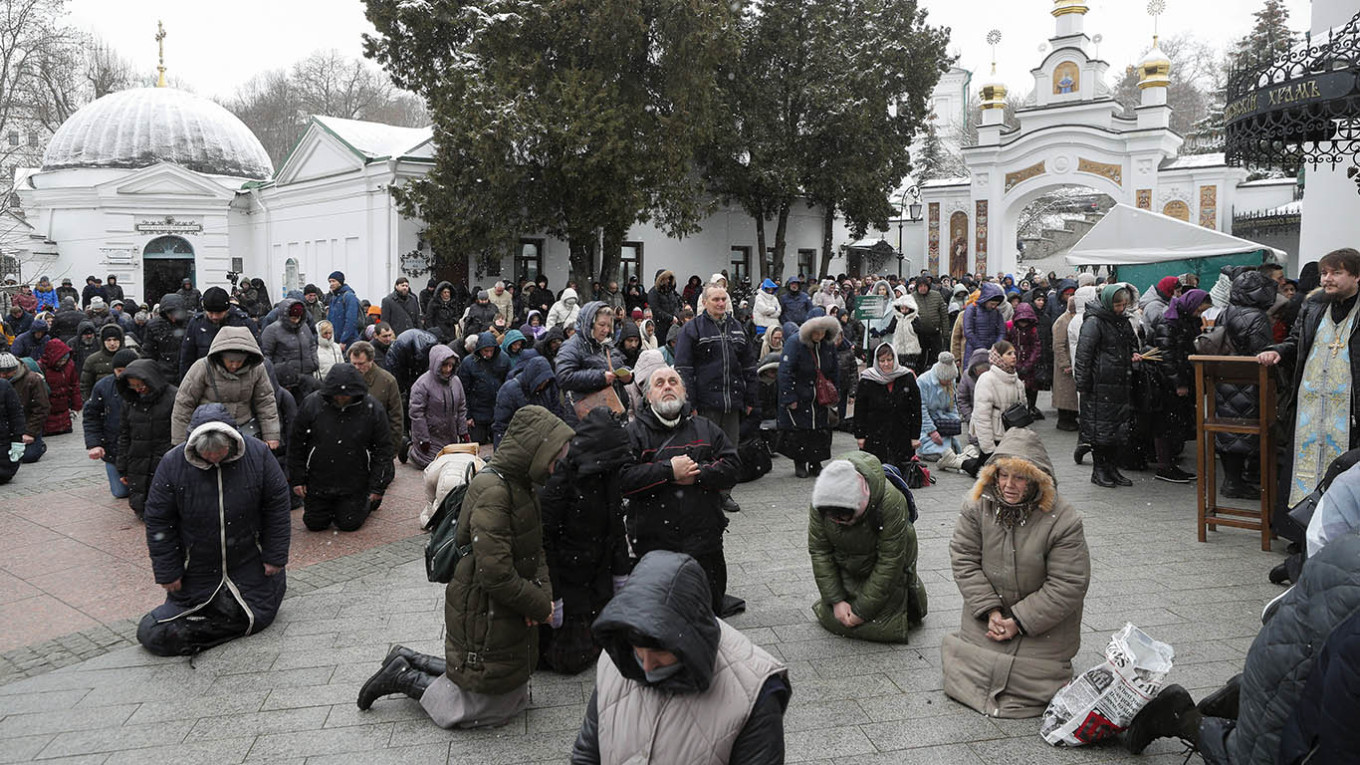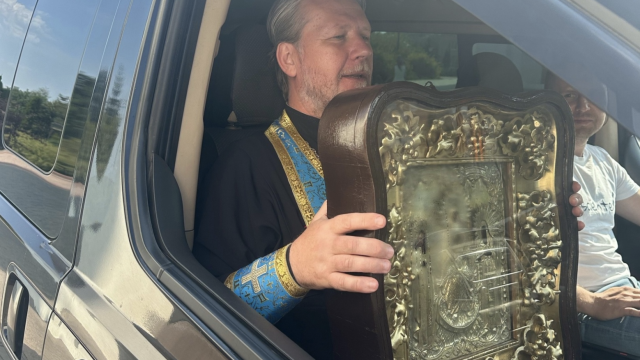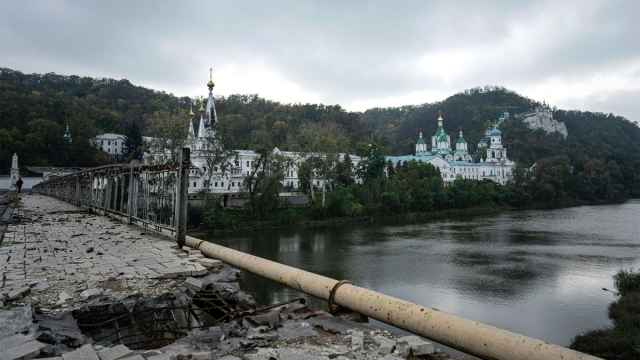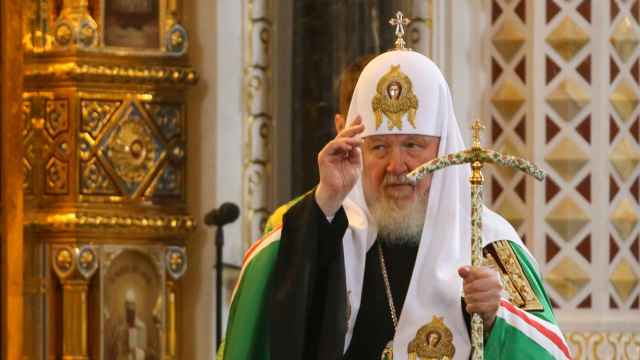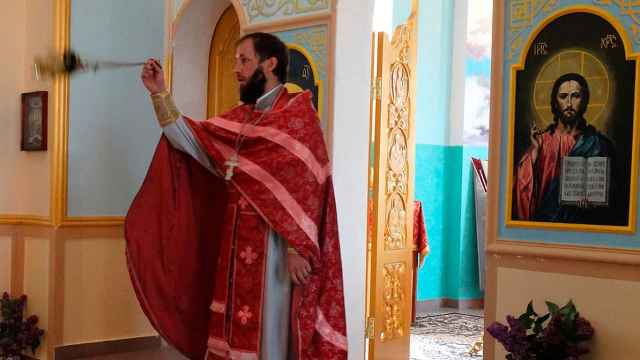Religious freedom is under attack in Ukraine. The Ukrainian Orthodox Church (UOC), a 1,000-year-old Christian denomination, is being systematically destroyed by the Ukrainian authorities. This act of religious vandalism is unparalleled since the worst excesses of Soviet rule. Ukraine has adopted discriminatory and populist legislation that will ban the UOC. The Norwegian human rights NGO, Forum 18, has denounced the bill, stating that the new law will “not help preserve the religious freedom, tolerance, and pluralism championed by Ukraine since gaining independence in 1991.” Indeed, the bill presents a direct challenge to Ukraine’s Western trajectory and accession to the EU.
Prominent clerics of the UOC have been arrested by Ukraine’s SBU security service on false or spurious charges. The latest United Nations Office of the High Commissioner for Human Rights Country Report details how arrested priests are being offered freedom if they agree to be exchanged for Ukrainian prisoners of war held by Russia. Some of my own clients have received this offer, which contravenes the Third Geneva Convention of 1949 and the Rome Statute of the International Criminal Court.
My client, Metropolitan Arseniy of the Sviatohirsk Lavra, has been in arbitrary detention since April this year. He has been charged over the contents of a sermon from September 2023 in which he complained that police checkpoints prevented pilgrims from reaching the monastery for an important religious festival. He now faces eight years in jail for supposedly giving away the location of the armed forces of Ukraine, despite the fact the checkpoints were not erected or manned by the military.
Metropolitan Arseniy’s pre-trial detention has been repeatedly extended in violation of Ukrainian law, and he has been subjected to inhumane and degrading treatment. He is in ill health and is desperate to return to the monastery where he has lived for over 30 years.
Vocal supporters of the UOC, such as Artem Dmytruk, a deputy of the Verkhovna Rada, have been demonized and forced to flee Ukraine. Far-right agitators called for violence against him and placed a bounty on his head after he criticized the new law. He only just managed to escape the country for the United Kingdom, where he is seeking asylum with his young family in the face of Kyiv’s efforts to extradite him back to Ukraine.
Meanwhile, historic churches owned by the UOC have been seized and transferred to the Orthodox Church of Ukraine (OCU), the state-backed Church that has become to Ukraine what the Russian Orthodox Church is to Russia – a mouthpiece of the government.
These takeovers have become increasingly violent. Just last week, St. Michael’s Cathedral in Cherkasy was raided during a night liturgy. Scores of OCU supporters dressed in army fatigues stormed the church, smashed the furniture, and fired tear gas. Violence erupted again the next day. According to a statement issued by Metropolitan Feodosii of Cherkasy and Kaniv, who was injured in the attack, “not one of the attackers or armed militants were detained by the police, and the violent acts, including beatings of people, were not interrupted or prevented by police officers.” Such criminal violence has been repeated in other illegal takeovers of UOC churches across Ukraine.
To make matters worse, the UOC is itself a victim of Russian aggression. Its churches and monasteries are being bombed, and its parishioners are being killed on the frontlines. In the occupied territories of Ukraine, the Russian Orthodox Church has seized control of UOC parishes. Those brave priests who protest these takeovers have been arrested on false charges and jailed. Fr Kostiantyn Maksimov, for example, has been sentenced to 14 years.
The Ukrainian authorities have conducted a vicious campaign against the Church, wilfully ignoring the steps taken by the UOC to separate from the Russian Orthodox Church and support Ukraine. Metropolitan Onufriy, the head of the Church, immediately condemned Russia’s full-scale invasion, stating that “in this tragic time, we express special love and support for our soldiers who stand guard and protect and defend our land and our people.”.
Shortly after, the UOC declared its full independence from the Moscow Patriarchate, building on the rights to autonomy and self-governance it first acquired in 1990. The UOC has since opened a network of parish churches in Europe to serve the needs of refugees and has provided millions in humanitarian aid. It has also denounced the pernicious ideology of the “Russian World,” promoted by Patriarch Kirill of the Russian Church.
Despite the efforts of the UN OHCHR and Forum 18 to document Ukraine’s attack on religious freedom, there has been relatively little reporting on this subject in the West. While Russia’s attack on religious freedom is well known, it has been taboo to criticize Ukraine’s clampdown on civil liberties.
I have come under sustained attack for defending the rights and freedoms of the UOC and its priests and parishioners. My critics overlook the fact I am banned from Russia for defending the country’s political opposition and am presently working actively against Russian interests in Georgia and elsewhere.
Significantly, the discourse surrounding the persecution of the church has begun to shift in recent weeks, especially in the wake of Ukraine’s adoption of the new law. Internationally respected figures and organizations have raised serious concerns. Pope Francis issued a strong rebuke of the bill, stating “Please, let no Christian Church be abolished directly or indirectly. Churches are not to be touched!”
Meanwhile, the World Council of Churches registered its alarm about the law’s “potential for unjustified collective punishment of an entire religious community and violation of the principles of freedom of religion or belief.”. Echoing these concerns about collective punishment, the U.S. Mission to the OSCE recently said that the law threatened to “blemish Ukraine’s historically robust support for religious freedom.”
The suppression and banning of an entire religious denomination, not least one with the history and cultural significance of the UOC, is a profound violation of the civil rights of innocent Ukrainian citizens. It is incumbent on the Ukrainian government to subject its new law to independent and international review. The West must continue to support Ukraine. But this must not come at the cost of a crackdown on civil liberties.
A Message from The Moscow Times:
Dear readers,
We are facing unprecedented challenges. Russia's Prosecutor General's Office has designated The Moscow Times as an "undesirable" organization, criminalizing our work and putting our staff at risk of prosecution. This follows our earlier unjust labeling as a "foreign agent."
These actions are direct attempts to silence independent journalism in Russia. The authorities claim our work "discredits the decisions of the Russian leadership." We see things differently: we strive to provide accurate, unbiased reporting on Russia.
We, the journalists of The Moscow Times, refuse to be silenced. But to continue our work, we need your help.
Your support, no matter how small, makes a world of difference. If you can, please support us monthly starting from just $2. It's quick to set up, and every contribution makes a significant impact.
By supporting The Moscow Times, you're defending open, independent journalism in the face of repression. Thank you for standing with us.
Remind me later.



